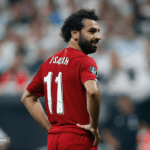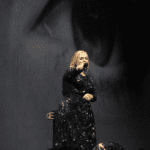Partial Chelsea FC owner Todd Boehly is growing increasingly disaffected with his partnership in the football club with Clearlake Capital, its majority owner. Boehly-who currently has a 38.5% stake in Chelsea-is said to be frustrated by the current management setup at the club, which he feels cannot be sustained. With tensions between Boehly and Clearlake increasing, resolution is now more urgent, amid fears of a deeper rift that might affect Chelsea’s ownership stability.

Speculation about Chelsea’s ownership has come to the forefront after Boehly expressed his reservations over Clearlake, which owns 61.5% of the club through its principals Behdad Eghbali and José E. Feliciano. There have, however, been strong denials that Boehly is looking to sell his share of the club. The American billionaire, who was in charge of the consortium that bought Chelsea from Roman Abramovich in 2022, is said to be confident that should he attempt to take full control of the club, investors would buy into him. As things stand, though, there have been no talks on either side about a buyout.
Meanwhile, Clearlake shows no signs of budging. The investment group that views Chelsea as a long-term project has no urge or intent to let go of its majority stake, and reportedly Boehly cannot sell to a third party without the green light from Clearlake. This, of course, sets up a complicated dynamic in which both sides are bound in a partnership that has so far strayed into concerning territory.
Notwithstanding, Boehly does not want to leave Chelsea without good terms. Though there have been insinuations he might seek a way out, close sources to Boehly insist he is not ready to be pushed out of the club. Instead, he wants to continue managing Chelsea, as his general view for the club goes up to the next two or three decades. Part of that, for Boehly, has been finding a solution to the internal problems within the ownership structure.
Boehly has fallen out with the approach adopted by Clearlake towards Chelsea’s administration. This cultural divide between the two parties has seemingly increased, with Boehly feeling that Chelsea’s current structure holds no longer. After Boehly notably used his own money initially to help finance the purchase of the club, the billionaire has sounded urgent tones. However, it is seemingly the case that, to date, no serious discussions over buying each other out have been opened.
While Boehly has indeed stepped back over the last year-and-a-half, Eghbali has emerged as the main man in terms of Chelsea’s day-to-day operations. That is a subtle change in leadership that has not gone unnoticed, with Boehly reportedly acknowledging the fact that the management structure needs to change if Chelsea is to keep moving forward. However, any sale of Boehly’s stake would more than likely come only with an extremely compelling offer being made. The ambition, for now, is still to drive Chelsea forward as club leader.
In the first days of the new ownership, Boehly was very involved in drafting Chelsea’s new sporting structure. He took the role of interim sporting director shortly after the takeover, overseeing a summer of heavy spending. His hands-on role seemed to draw the ire of some quarters, in particular, as Chelsea splashed out heavily on new signings. Still, Boehly had not planned on being that hands-on and has since receded to allow others to take up the more prominent roles.
Eghbali has been pulling the strings from behind the scenes in particular during the past year and a half in close collaboration with Chelsea’s co-sporting directors Paul Winstanley and Laurence Stewart. Under their management, the past months have seen the most unbelievable spending ever, whereby even the head coach position was taken by Enzo Maresca. The board at Chelsea is still highly convinced that Maresca will be able to get Chelsea to reclaim the top spots and qualify for the Champions League once again.
Turbulence at Chelsea? Well, the ownership dispute was just the tip of the iceberg. Off the pitch, there has been significant upheaval at the club since Abramovich’s departure. Only recently, Chris Jurasek became the latest senior figure to relinquish his duties, standing down from the post of chief executive. This follows a string of high-profile exits that have typified Chelsea’s evolution into a new era. Currently, all major decisions at the club must be signed off by Boehly, Eghbali, and Feliciano, continuing to make the club’s management structure more complex.
Also, the long-planned redevelopment of Stamford Bridge has barely moved forward. The new ownership is ambitious in redeveloping the stadium and thus securing the future of the club among European football’s top echelons. These ambitions have been there for a very long time, while tangible steps towards redevelopment come out slow. All this further increases the growing pressure put upon Chelsea’s leadership while it struggles through the ownership and management phase.
But with tensions simmering between Boehly and Clearlake, the one surefire outcome is that Chelsea’s leadership is staying put right up in the air. What does stand out, however, is a keen interest on both sides to avoid a public fallout. The determination of Boehly, in particular, seems quite strong to iron out the kinks that have strained his relationship with Clearlake. Whether this will lead to a buyout or a restructuring in the club’s management is anybody’s guess, but the coming months promise to be critical in setting Chelsea’s course for the future.


